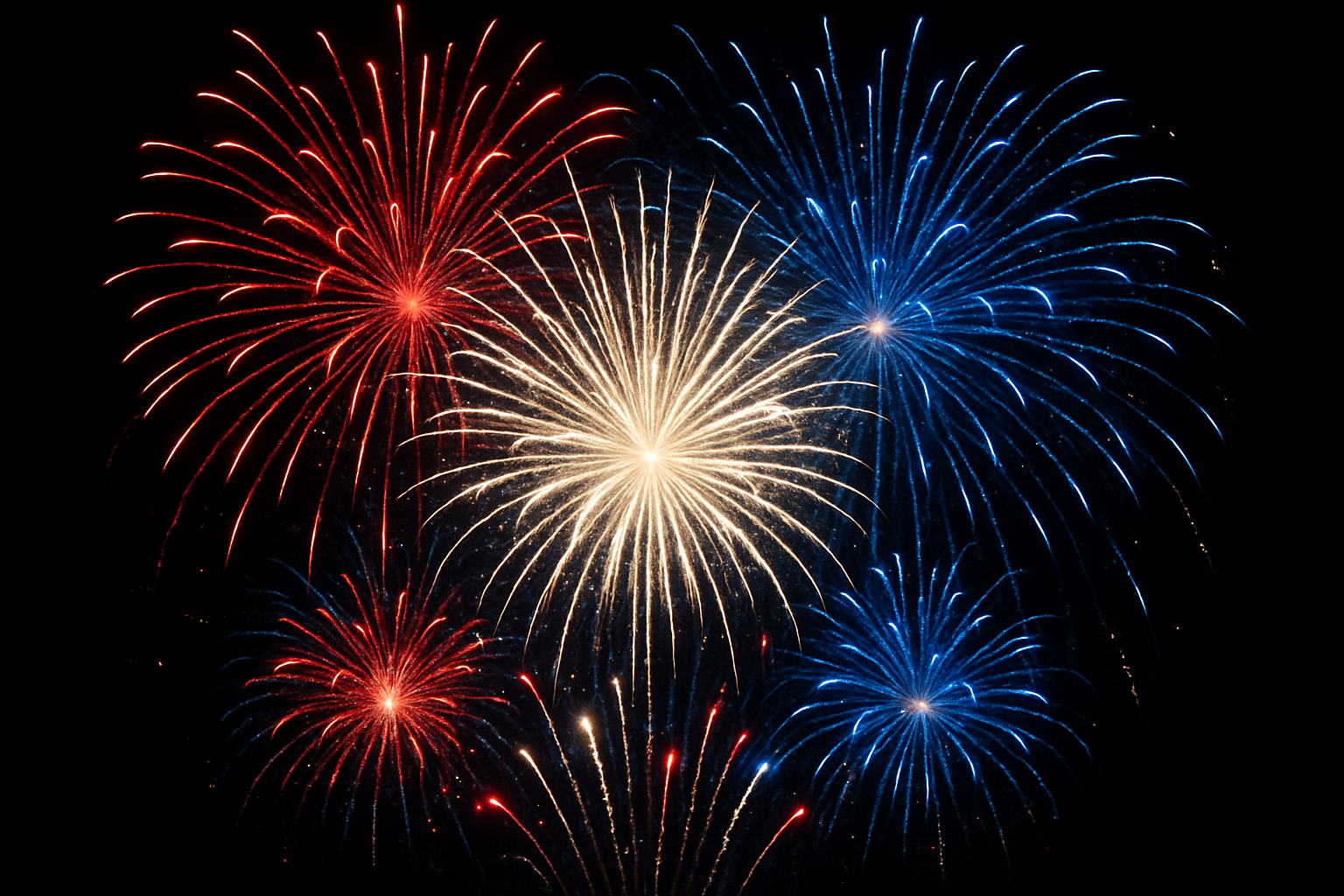As fireworks light up the summer sky and flags wave proudly on front porches, the 4th of July stands as a cornerstone of American tradition. It’s a time for celebration, family gatherings, barbecues, and patriotic pride. But for many, it’s also a time of critical reflection—a chance to look deeper into our nation’s founding ideals and the realities that still shape our experience of freedom today.
At Fortified Living, we believe in celebrating with both joy and intention. In this article, we’ll explore why the 4th of July is worth honoring, why it can be a painful reminder for Black and Brown Americans, and offer some powerful historical insights—both classic and unexpected.
Why Celebrate the 4th of July?
The 4th of July commemorates the adoption of the Declaration of Independence in 1776. It’s a day symbolizing freedom, resilience, and the birth of a democratic experiment that continues to evolve. Here are a few reasons to celebrate:
1. Celebrating Liberty and Self-Governance
The founding of the United States represented a break from monarchy and colonial rule. The idea that people could govern themselves—however imperfectly executed—was revolutionary.
2. Honoring Civic Ideals
Life, liberty, and the pursuit of happiness remain powerful principles. While not everyone has always had equal access to those rights, the ideals themselves are worthy of reflection and continued struggle.
3. A Time for Community Connection
The 4th offers a chance to reconnect with neighbors and loved ones, fostering unity in a divided time.
4. Remembering Those Who Fought for Freedom
From Revolutionary soldiers to civil rights leaders, many have risked or given their lives to defend the principles of liberty and justice.
5. A Call to Action
Rather than just a day off, Independence Day can be a prompt to renew our civic responsibility—voting, organizing, and holding institutions accountable.
Why the 4th of July May Be Offensive or Painful for Some Black and Brown Americans
While the 4th of July celebrates freedom, the historical and ongoing realities of racial injustice complicate that narrative for many. Here are five reasons the holiday may not feel celebratory to everyone:
1. Slavery Was Still Legal in 1776
The Declaration of Independence declared “all men are created equal,” yet enslaved Africans were denied humanity. Independence did not apply to them.
2. Systemic Racism Persisted Long After Independence
From Jim Crow to mass incarceration, Black and Brown Americans have often been excluded from the liberties July 4th promises.
3. Frederick Douglass’s Famous Critique
In 1852, Douglass asked, “What, to the American slave, is your 4th of July?” His speech exposed the hypocrisy of a nation celebrating freedom while upholding slavery.
4. Colonial Violence Against Indigenous and Brown Communities
The independence of the U.S. also marked the beginning of westward expansion and the violent displacement of Native American and Mexican communities.
5. Token Patriotism Often Masks Inequality
Some feel the day is used to gloss over real issues, pushing a “love it or leave it” narrative rather than embracing the complexity of American identity.
5 Important Historical Facts About the 4th of July
-
Declaration Adopted on July 4, 1776
Though signed over several weeks, July 4 is the date Congress officially adopted the Declaration of Independence.
-
John Adams Preferred July 2nd
Adams thought July 2nd—the day Congress voted for independence—would be celebrated forever. He even refused invitations to 4th of July events in protest.
-
Independence Day Became a Federal Holiday in 1870
Nearly 100 years after the Revolution, Congress made it an official holiday—originally unpaid, later made a paid federal holiday in 1938.
-
Two Founding Fathers Died on July 4, 1826
Both John Adams and Thomas Jefferson died on the 50th anniversary of the Declaration—within hours of each other.
-
The Liberty Bell Was Not Rung on July 4, 1776
Contrary to myth, the bell likely rang four days later, on July 8, to mark the public reading of the Declaration.
5 Odd or Lesser-Known Facts About the 4th of July
-
Hot Dogs Galore
Americans eat approximately 150 million hot dogs every 4th of July—enough to stretch from D.C. to L.A. over five times.
-
Fireworks Were Imported From China
Fireworks became part of the celebration as early as 1777, with early supplies shipped from China—linking the tradition to global trade.
-
A President Was Born on July 4th
Calvin Coolidge, the 30th president, was born on July 4, 1872—making him the only U.S. president born on Independence Day.
-
No “United States” on the Declaration
The words "United States of America" do not appear until the very end of the document.
-
Benjamin Franklin Wanted the Turkey, Not the Eagle
Franklin famously thought the bald eagle was “a bird of bad moral character” and suggested the turkey would be a better national symbol.
Fortify This
The 4th of July is both a celebration and a paradox. It reminds us of the dreams this country was built upon and the deep disparities that have often betrayed those dreams. At Fortified Living, we invite you to celebrate with open hearts and critical minds—grateful for the freedoms we have, mindful of those still waiting to fully share in them.
This Independence Day, let’s enjoy the fireworks—but also keep building a nation where liberty and justice for all isn’t just an ideal, but a lived reality.



0 comments